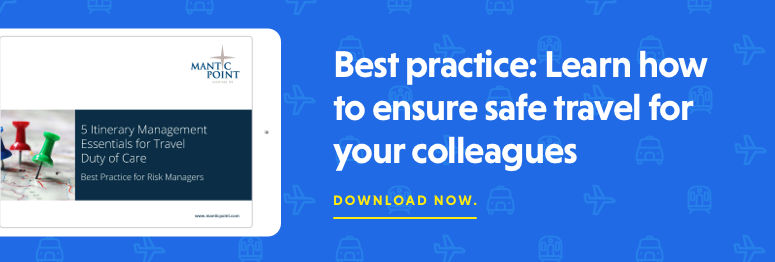The TSA Precheck – Is it worth it?
Posted by Mike Atherton on 01 March, 2017
The Transport Security Administration (TSA) precheck has been described as a lifesaver by many travellers to the US. Others, however, have raised concerns regarding the security of personal information provided to the TSA through this programme. So is it a worthwhile investment for your travellers?
In the wake of newly-confirmed US Secretary of Homeland Security, John Kelly, suggesting that foreign nationals should be required to give up social media passwords to be granted entry to the US, it can be difficult to know whether programmes such as the TSA precheck are worth the risk.
The TSA Precheck - Key Facts
In 2011, the TSA precheck was released as a method for verifying the security of travellers. The programme is now available at 118 US airports, costs $85 (£68) to apply for ($100 (£80) for non-US residents), and a successful application is valid for 5 years. An estimated 1,850 people apply for the precheck every day, and 2 million people are currently enrolled, a figure that reflects the programme’s wide success since its introduction.
To qualify for the TSA precheck, applicants must provide key pieces of personal information as well as a valid passport or birth certificate, a recent photograph and fingerprints.
This information is checked against data held by the FBI and CDC, to determine whether there is any security or health reason the applicant is prohibited from flying. If the application is denied, it is usually because of an undeclared security or health hazard. In this case, precheck membership would not be granted, and the $85 fee would be lost. However, if cleared, the traveller is able to pass through security gates at US airports with minimal checks.
A Lifesaver?
At just $17 (£13.60) per year, the cost of the TSA precheck seems minimal compared to other costs of flying, and with the average number of business trips per year now approaching five for 18-30 year olds, this represents a cost of just $3.60 (£2.60) per trip. For this, the most obvious benefit is the VIP treatment of being able to jump the queues at security gates. Although TSA precheck queues can be longer, they tend to move faster and passengers may board sooner than those passengers without the precheck. This can ease frustration and the worry of boarding late.
Additionally, the precheck allows passengers to pass through security baggage checks without removing hazard items (electronics, liquids, medicines) from hand luggage, or items of clothing (belts, jackets, shoes). This is part of what speeds up boarding with the TSA precheck, as well as the elimination of body scanners and pat-downs, which often take up the most time at security gates. This can be an additional incentive to travellers who are wary of scanners or dislike body searches, both of which can feel invasive.
A Security Hazard?
There is a fine line between collecting enough data that travellers can be effectively screened, with passengers feeling assured that the precheck system is effective, and collecting so much information that its existence poses a data security risk. This has been highlighted by senior analysts of the American Civil Liberties Union (ACLU), which has warned of ‘background checks on everyone who flies’, a clear violation of US law. As conspiratorial as this sounds, the TSA does reserve the right to share personal data with federal, state, tribal or foreign governments, or an “other appropriate authority”, and due to a lack of transparency, it is unclear what additional scrutiny is carried out.
Another reason some passengers have turned away from the TSA precheck in recent times is because of the need to apply in person. To provide fingerprints and other information, applications cannot be made online or over the phone. It's possible this might put off millennial travellers.
An Individual Choice
As with many aspects of business travel management, the question of whether the TSA precheck is right for your travellers is based on the individual nature of your travellers, and your business. For frequent, busy travellers who risk missing flights, it is likely to be worth the investment to ensure they can board safely and on time.
The decision to subsidise TSA prechecks, as always, lies with the management. However, almost half (45%) of frequent business travellers currently have the TSA precheck and since frequent business traveller satisfaction is strongly tied to airport waiting times, any effort to reduce waiting times, as well as anxiety surrounding punctuality, is likely to increase traveller satisfaction.
Making the decision to implement the TSA precheck should form part of a duty of care strategy to manage the risks posed to your travellers, to ensure they get the most out of business travel. To learn more about managing duty of care, download our free guide.



